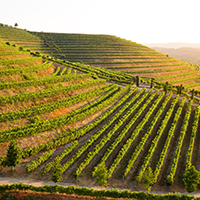Your Cart is Empty
Get 10% off 6 still wines. Enter code SAVE10 during checkout. Excludes some fine wine and Sparkling.
Get 10% off 6 still wines. Enter code SAVE10 during checkout. Excludes some fine wine and Sparkling.
Get 10% off 6 still wines. Enter code SAVE10 during checkout. Excludes some fine wine and Sparkling.
Get 10% off 6 still wines. Enter code SAVE10 during checkout. Excludes some fine wine and Sparkling.
Type: White Wine
Style: Aromatic and Floral White
Country: Spain
Region: Galicia
Vintage: 2022
ABV: 12.7
Size: 75cl
Vegan: Certified

Located in Rías Baixas, Spain, the Altos de Torona winery is dedicated to the production, marketing and export of various brands of Albariño wine and other native varieties of Galicia. Rías Baixas exhibits great biodiversity, where more than 91 species of flora and 71 species of fauna coexist. The region is protected under a plan for action and the conservation of this natural habitat that gives rise to wines of Atlantic character, of marked typicity, freshness and elegance.

Galicia, located in the northwest of Spain, is renowned for its distinctive and high-quality wines, benefiting from a unique climate influenced by the Atlantic Ocean. The region's cool, wet conditions and lush landscapes create an ideal environment for viticulture.
It is particularly famous for its exceptional white wines, notably from the Albariño grape, which produces crisp, aromatic wines with vibrant acidity and notes of citrus and stone fruit. The area also produces high-quality reds from varieties such as Mencía, known for its fresh, fruity character and subtle tannins.
Historically, Galicia’s winemaking tradition dates back to Roman times, but the region began to gain wider recognition in the late 20th century.
Website by Pale Blue Dot